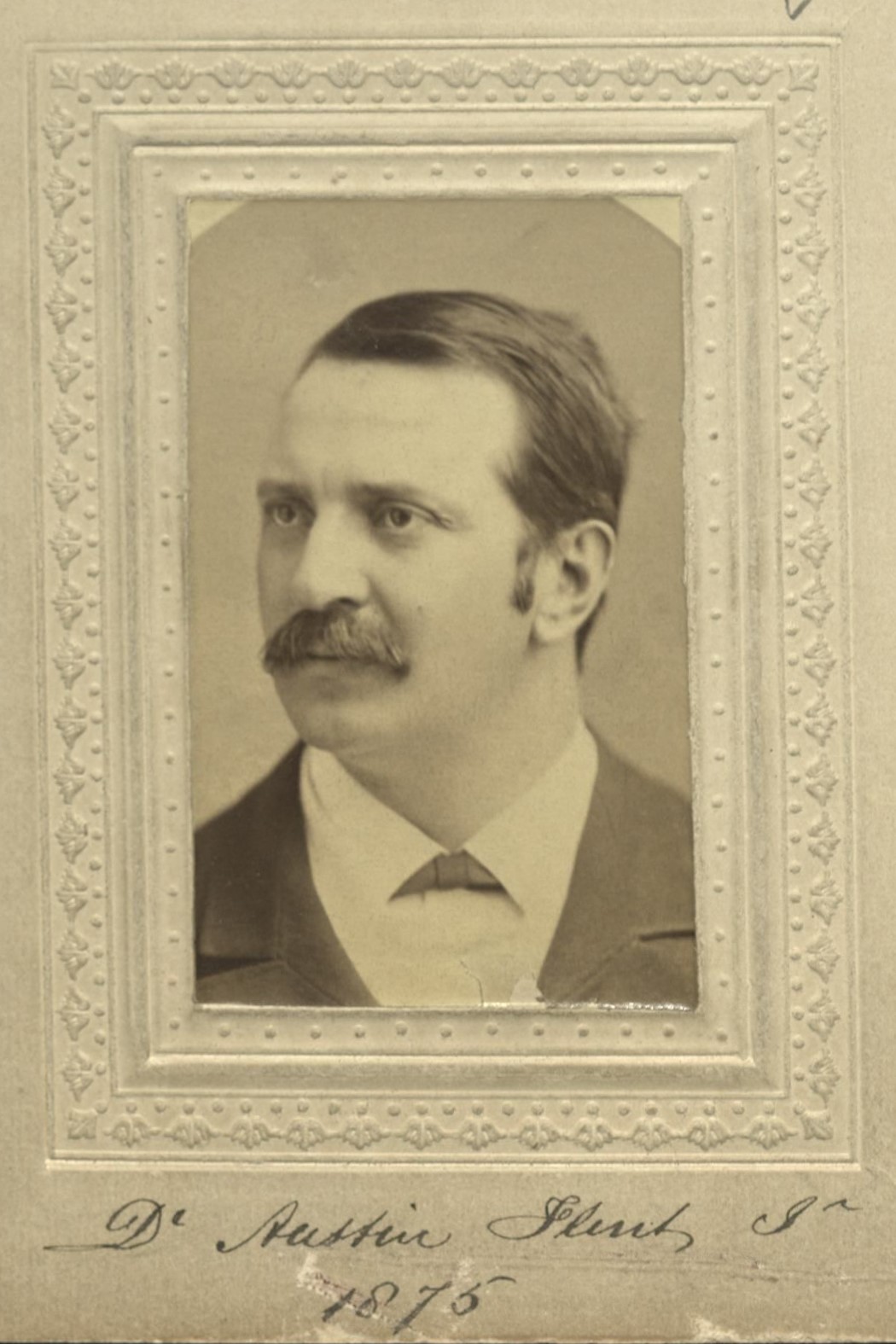Physician
Centurion, 1875–1915
Born 28 March 1836 in Northampton, Massachusetts
Died 22 September 1915 in New York (Manhattan), New York
Buried Forest Hills Cemetery and Crematory , Jamaica Plain, Massachusetts
, Jamaica Plain, Massachusetts
Proposed by Henry Holt and Fordyce Barker
Elected 6 March 1875 at age thirty-eight
Archivist’s Note: Son of Austin Flint (elected to the club before his father); father of Austin Flint III; great-grandfather of Austin Flint
Proposer of:
Seconder of:
Century Memorial
Austin Flint;—can we believe that we shall not see his form again among us?—was the son of the first Austin Flint, one of the great personalities in American medicine. The son, who was to become the most widely known of American physiologists, was born in 1836. His medical education seems to have been rather broken, until he graduated from the Jefferson Medical College in Philadelphia. But he was his father’s son, and soon proved his ability in physiological investigations and experiments upon living animals. Beginning practice with his father in Buffalo, he removed with him to New York, and was appointed Professor of Physiology in the New York Medical College. When but twenty-five years old, he was one of the founders of Bellevue Hospital, where he became Professor of Physiology, a position which he ably filled for nearly forty years. During the war he was acting assistant surgeon of the United States Army at the General Hospital in this city. And afterwards, on through the decades of his long life, he taught and lectured at many medical institutions, noted everywhere among the students for the clearness of his exposition and the aptness of his illustrations. In 1875 Governor Tilden appointed him Surgeon-General of the State of New York, and he was reappointed by Governor Robinson. In later years he became known as an alienist, and was consulting physician of the Manhattan State Hospital for the Insane.
His fame will rest upon his writings. He began the publication of his admirable Physiology of Man in 1866, completing its fifth and closing volume in 1875. It was afterwards worked over in his Text-book and Handbook of Physiology, manuals which passed through many editions and were used throughout the country. He also edited medical journals and wrote many articles. Dr. Flint formerly possessed enormous physical strength; and to the last remained a man of active mind and varied interests; alert, incisive, captious, he was indeed a personality.
Henry Osborn Taylor
1916 Century Association Yearbook

